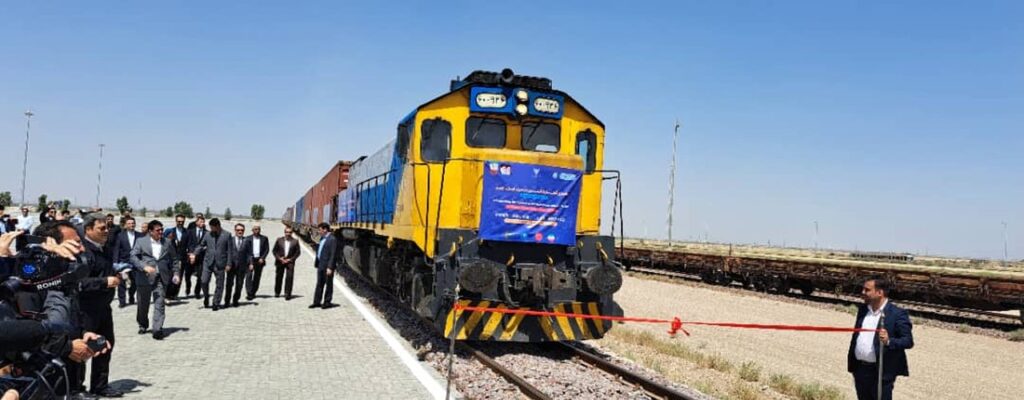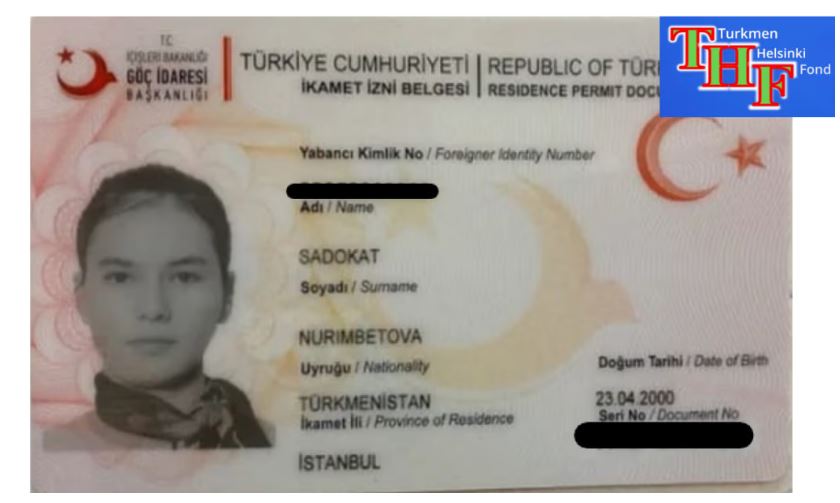Viewing results 91 - 96 of 169
KTZ Express, a subsidiary of Kazakhstan’s national railways company Kazakhstan Temir Zholy (KTZ), and China Railway Container Transport Co. Ltd. have resumed the operation of container trains on the Iran-Turkmenistan-Kazakhstan-China route. As reported by KTZ’s press service, representatives of Iran, China, Kazakhstan, and Turkmenistan attended a ceremony on July 21 at Iran's Aprin station to mark the departure of a container train to China. The train, consisting of 50 forty-foot containers, will arrive in China within 12 days. This shipment marks the restoration of the transport corridor, strengthening trade relations between participating countries.
The Global Center on AI Governance has published a report titled “Results of the Global Index on Responsible AI in Eastern Europe and Central Asia.” Among Central Asian countries, Uzbekistan has been judged to use artificial intelligence in the most responsible way. Recent AI initiatives in Uzbekistan cover fields including cultural and linguistic diversity, international cooperation, public sector skills development, and transparency. Kazakhstan ranks second in the region. Among Central Asian countries, Kazakhstan ranks first for the number of government initiatives related to responsible AI. Kyrgyzstan ranks third in the region, demonstrating significant non-governmental sector participation in responsible AI. However, the need for a comprehensive government system affects its overall outcome. The report states that the country has received a high rating for responsible AI governance, second only to Uzbekistan in the region. However, due to the scarcity of government frameworks, which, along with government initiatives, had the most weight in the index score, Kyrgyzstan scored lower in the Responsible AI Index. Tajikistan is the only Central Asian country with an AI national strategy aimed at development until 2040. It ranks fourth in the region. However, this strategy covers only 5 out of 19 thematic directions. Tajikistan's scores are relatively high regarding responsible AI governance; however, the country has the most passive non-state sector among the pillars assessed. Turkmenistan has the lowest indicator in the region. Government structures related to the responsible use of artificial intelligence have not been identified in the country.
On July 25, Kyrgyzstan hosted the 6th meeting of the Kyrgyz-Turkmen intergovernmental commission on trade, economic, scientific, technical, and humanitarian cooperation, chaired by Kyrgyzstan’s Deputy Chairman of the Cabinet of Ministers—Bakyt Torobaev, Minister of Water Resources, Agriculture and Processing Industry, and Annageldi Saparov, Minister of Energy of Turkmenistan. The parties noted the sevenfold increase in trade turnover between Kyrgyzstan and Turkmenistan over the past four years and discussed means for further improvement. In 2023, bilateral trade totalled $64 million. Torobaev proposed opening a joint bonded zone in Turkmenistan to develop trade infrastructure and postal operations in e-commerce. He also noted that providing preferential tariffs for Kyrgyz cargo trucks through Turkmenistan's territory and simplifying the visa procedure for Kyrgyz drivers will significantly expand bilateral trade exchange. Due to their geographical locations, the parties emphasized that Kyrgyzstan and Turkmenistan have significant potential in the transport and logistics sector. In particular, the planned launch of a transport corridor from China through Kyrgyzstan and Uzbekistan to Turkmenistan, utilizing the Turkmenbashi seaport, will provide access to the Caspian Sea and the Russian Federation, opening up new economic opportunities for both countries. The meeting addressed the need to continue working on creating a Kyrgyz-Turkmen Development Fund as a mechanism for uniting the two countries' business sectors and stimulating the creation of joint ventures. The parties also discussed a project to build a Turkmen resort in Cholpon-Ata at Lake Issyk-Kul. The Kyrgyz government’s press service stated that the parties signed documents on Kyrgyzstan's import of Turkmen electricity in 2025 but did not disclose details.
Sadokat Nurimbetova, the daughter of prominent civil activist Hamida Babajanova, was removed from a Turkmenistan Airlines flight to Istanbul at Ashgabat International Airport, it has been reported. Nurimbetova, an ethnic Uzbek, is a second-year student at Istanbul Medical University, and accordingly she has a valid Turkish residence permit, a “kimlik.” On June 5, Nurimbetova went to her home country to apply for a new passport, which she duly received on July 10, and bought a plane ticket to Istanbul. At passport control, two immigration officials intercepted Nurimbetova and took her to a separate room. There, she was fingerprinted and interrogated, after which the Migration Service officers told the student that she was banned from leaving Turkmenistan. “This is a directive from above," Nurimbetova was told, and was advised not to go anywhere and not to complain to anyone. It was also emphasized to her that her mother should not entertain thoughts of going anywhere. Nurimbetova is the daughter of well-known Turkmen civil activist Hamida Babajanova, who last year defended the right of her elderly mother, Yakujan, to make a pilgrimage to Mecca. Recently, cases of Turkmen citizens being removed from flights abroad without explanation have become more frequent. The same thing is happening when attempting to cross the border by land.
Turkey is at the final stage of negotiations on an agreement to transit Turkmen gas, Turkish Minister of Energy and Natural Resources Alparslan Bayraktar has announced in an interview with Bloomberg. Bayraktar said that “Turkey is studying the possibility of importing gas from Turkmenistan through a gas swap via neighboring Iran,” adding that a final agreement could be reached during an upcoming visit to Turkmenistan. It is expected that gas supplies from Turkmenistan will be carried through Iran in the amount of 1.5-2 billion cubic meters per year. In addition, the Minister did not rule out the possibility of using the Iran-Azerbaijan gas pipeline to deliver “blue fuel” to Turkey, from where it will be pumped into the Trans-Anatolian gas pipeline (TANAP). In March of this year, Ashgabat and Ankara signed a memorandum of cooperation in the field of natural. In early June, the state oil company of Azerbaijan (SOCAR) and the Turkish state gas company, Botas signed a cooperation agreement to supply Turkmen gas through Azerbaijan and third countries to Turkey.
On July 20, government representatives from Kazakhstan, Turkmenistan, and Afghanistan gathered in Aktau, Kazakhstan, to discuss the construction of a new railway line running from the Turkmenistan border through Afghanistan to Pakistan via Turgundi—Herat—Kandahar—Spin Buldak, The joint implementation of the project was proposed by head of the Agency for Transport and Communications of Turkmenistan, Mammetkhan Chakyev, who also announced that Turkmenistan and the Afghan side had already agreed to create a logistics centre in Turgundi, a border town in northern Herat Province of Afghanistan. Construction is due to commence shortly and once in operation, will provide facilities for the transhipment of grain, rail containers, and other cargo. Kazakhstan's invitation to participate in the project rests on its production of high-quality railway tracks and as stated by Chakyev, “Turgundi-Herat is not only the construction of a railway but also the further development of freight traffic and the attraction of goods in this direction. With the participation of the Kazakh side, we can significantly increase the attractiveness of this corridor." Afghan representatives stating their readiness to forward the transport of goods from Kazakhstan and Turkmenistan to Pakistan, highlighted the effectiveness of the route for all concerned as well as the benefits it afforded to importing Chinese goods through Kazakhstan and Turkmenistan. Kazakhstan’s Deputy Prime Minister Serik Zhumangarin announced his support for Turkmenistan's proposal for the joint construction of the new railway route and its provision of a western corridor from Afghanistan to Pakistan and India.






